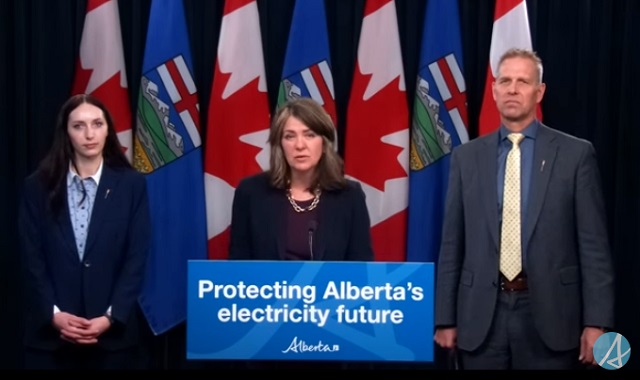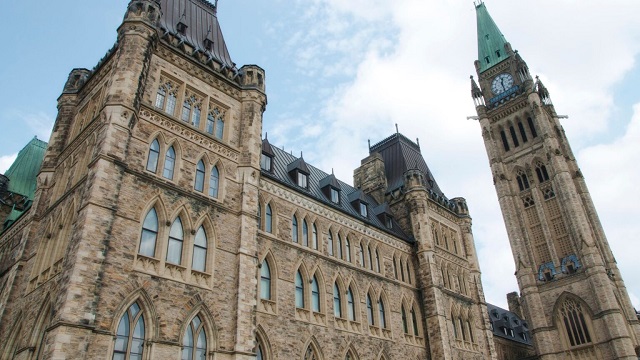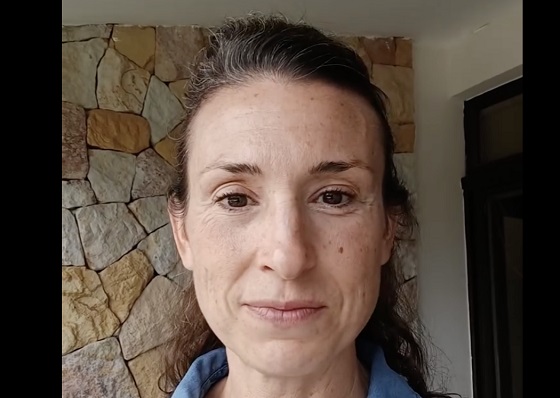Alberta
Tough times call for free access to mental health – Alberta NDP

From the Alberta NDP
NDP CALLS FOR ALBERTANS TO HAVE ACCESS TO FIVE PROVINCIALLY FUNDED MENTAL HEALTH SESSIONS
Alberta’s NDP Official Opposition is calling on the provincial government to help all Albertans get through the incredibly difficult COVID-19 pandemic by making five mental health therapy sessions available through the provincial insurance plan, with an online assessment tool to help connect them with a mental health professional.
“Albertans have endured incredible stress throughout this year, from job losses to social isolation to the loss of loved ones,” said Rachel Notley, Leader of Alberta’s NDP Official Opposition. “Heading into the holidays, I know how painful it is that we won’t be able to gather with our friends and extended family. For many, the holidays are always tough, and this year will be especially hard.
“Many Albertans need someone to talk to and help them process everything they’ve been through in a healthy way.
The Opposition is calling on the provincial government to launch a simple online tool to help Albertans assess their mental health needs and then connect them to five provincially insured sessions with a registered healthcare provider. Using the provincial health care plan means no out-of-pocket costs for anyone with a provincial health number. While the cost of the recommendation will depend on Albertans’ uptake of the program, the Opposition recommends the government make a commitment to fund up to $100 million worth of mental health support.
Dr. Keith Dobson is a Professor of Clinical Psychology at the University of Calgary, as well as a senior consultant for the Opening Minds program of the Mental Health Commission of Canada. He has been at the University of Calgary since 1989 in a variety of roles, including Head of Psychology and a member of the Board of Governors. He is a recognized expert in the field of mental health and the development and delivery of psychological treatment programs.
“Mental health needs were largely unmet before the pandemic and have grown considerably since,” Dr. Dobson said. “Estimates are that rates of anxiety and depression have at least doubled since early 2020, and that rates of alcohol use and domestic violence have also increased. We have evidence-based psychological and counseling services that have been, and can be, delivered using technology. The College of Alberta Psychologists has well developed standards for the provision of this service, and there is an available pool of trained and qualified service providers. This initiative is timely and needs serious consideration by the government.”
Dr. Judi Malone, CEO of the Psychologists’ Association of Alberta, said all Albertans, regardless of income, should have access to psychological services.
“The psychological health and wellness of Albertans can be substantively improved by enhancing access to appropriate mental health treatment,” Malone said. “Community and family supports are invaluable but when psychotherapy is warranted it needs to be provided by qualified professionals. Cost is a barrier to access as there are few publicly funded psychological services.
“COVID-19 has impacted the psychological health of Albertans who were already reeling from our economic downturn,” Malone added. “We can avoid a psychological pandemic by investing in the psychological health and wellness of Albertans. Access to necessary psychological support was difficult before – and that need for the services of registered psychologists continues to grow. Without policies, programs, and services in place we cannot meet this impending demand.”
A recent study from Morneau-Shepell, a human resources firm, said Albertans reported the highest increase in stress levels of all Canadians in November. Albertans have reported some of the worst mental health in Canada throughout 2020, and currently have the third-worst, ahead of Manitoba and Saskatchewan.
Yesterday, on Human Rights Day, the Alberta Division of the Canadian Mental Health Association, renewed its call for Albertans to have access to mental health care services in accordance with the five principles of Medicare: universal, comprehensive, accessible, portable and publicly administered. The expansion of services recommended by the Opposition would be an important step towards that goal in Alberta.
“The pandemic has made our lives much more difficult, and it’s also driven home how important it is to be proactive about our own health,” said Heather Sweet, Opposition Critic for Mental Health and Addiction. “This is an opportunity for the province to give Albertans the tools to do that. Over the past months, we have all gotten used to using an online tool to screen ourselves for the COVID-19 virus, and to be connected to testing services and health advice.
“Albertans should be able to assess their mental health at home, and have confidence that they will be connected to the help they need.”
Alberta
Alberta government should create flat 8% personal and business income tax rate in Alberta

From the Fraser Institute
By Tegan Hill
If the Smith government reversed the 2015 personal income tax rate increases and instituted a flat 8 per cent tax rate, it would help restore Alberta’s position as one of the lowest tax jurisdictions in North America
Over the past decade, Alberta has gone from one of the most competitive tax jurisdictions in North America to one of the least competitive. And while the Smith government has promised to create a new 8 per cent tax bracket on personal income below $60,000, it simply isn’t enough to restore Alberta’s tax competitiveness. Instead, the government should institute a flat 8 per cent personal and business income tax rate.
Back in 2014, Alberta had a single 10 per cent personal and business income tax rate. As a result, it had the lowest top combined (federal and provincial/state) personal income tax rate and business income tax rate in North America. This was a powerful advantage that made Alberta an attractive place to start a business, work and invest.
In 2015, however, the provincial NDP government replaced the single personal income tax rate of 10 percent with a five-bracket system including a top rate of 15 per cent, so today Alberta has the 10th-highest personal income tax rate in North America. The government also increased Alberta’s 10 per cent business income tax rate to 12 per cent (although in 2019 the Kenney government began reducing the rate to today’s 8 per cent).
If the Smith government reversed the 2015 personal income tax rate increases and instituted a flat 8 per cent tax rate, it would help restore Alberta’s position as one of the lowest tax jurisdictions in North America, all while saving Alberta taxpayers $1,573 (on average) annually.
And a truly integrated flat tax system would not only apply a uniform tax 8 per cent rate to all sources of income (including personal and business), it would eliminate tax credits, deductions and exemptions, which reduce the cost of investments in certain areas, increasing the relative cost of investment in others. As a result, resources may go to areas where they are not most productive, leading to a less efficient allocation of resources than if these tax incentives did not exist.
Put differently, tax incentives can artificially change the relative attractiveness of goods and services leading to sub-optimal allocation. A flat tax system would not only improve tax efficiency by reducing these tax-based economic distortions, it would also reduce administration costs (expenses incurred by governments due to tax collection and enforcement regulations) and compliance costs (expenses incurred by individuals and businesses to comply with tax regulations).
Finally, a flat tax system would also help avoid negative incentives that come with a progressive marginal tax system. Currently, Albertans are taxed at higher rates as their income increases, which can discourage additional work, savings and investment. A flat tax system would maintain “progressivity” as the proportion of taxes paid would still increase with income, but minimize the disincentive to work more and earn more (increasing savings and investment) because Albertans would face the same tax rate regardless of how their income increases. In sum, flat tax systems encourage stronger economic growth, higher tax revenues and a more robust economy.
To stimulate strong economic growth and leave more money in the pockets of Albertans, the Smith government should go beyond its current commitment to create a new tax bracket on income under $60,000 and institute a flat 8 per cent personal and business income tax rate.
Author:
Alberta
Province to stop municipalities overcharging on utility bills

Making utility bills more affordableAlberta’s government is taking action to protect Alberta’s ratepayers by introducing legislation to lower and stabilize local access fees. Affordability is a top priority for Alberta’s government, with the cost of utilities being a large focus. By introducing legislation to help reduce the cost of utility bills, the government is continuing to follow through on its commitment to make life more affordable for Albertans. This is in addition to the new short-term measures to prevent spikes in electricity prices and will help ensure long-term affordability for Albertans’ basic household expenses.
Local access fees are functioning as a regressive municipal tax that consumers pay on their utility bills. It is unacceptable for municipalities to be raking in hundreds of millions in surplus revenue off the backs of Alberta’s ratepayers and cause their utility bills to be unpredictable costs by tying their fees to a variable rate. Calgarians paid $240 in local access fees on average in 2023, compared to the $75 on average in Edmonton, thanks to Calgary’s formula relying on a variable rate. This led to $186 million more in fees being collected by the City of Calgary than expected.
To protect Alberta’s ratepayers, the Government of Alberta is introducing the Utilities Affordability Statutes Amendment Act, 2024. If passed, this legislation would promote long-term affordability and predictability for utility bills by prohibiting the use of variable rates when calculating municipalities’ local access fees. Variable rates are highly volatile, which results in wildly fluctuating electricity bills. When municipalities use this rate to calculate their local access fees, it results in higher bills for Albertans and less certainty in families’ budgets. These proposed changes would standardize how municipal fees are calculated across the province, and align with most municipalities’ current formulas.
If passed, the Utilities Affordability Statutes Amendment Act, 2024 would prevent municipalities from attempting to take advantage of Alberta’s ratepayers in the future. It would amend sections of the Electric Utilities Act and Gas Utilities Act to ensure that the Alberta Utilities Commission has stronger regulatory oversight on how these municipal fees are calculated and applied, ensuring Alberta ratepayer’s best interests are protected.
If passed, this legislation would also amend sections of the Alberta Utilities Commission Act, the Electric Utilities Act, Government Organizations Act and the Regulated Rate Option Stability Act to replace the terms “Regulated Rate Option”, “RRO”, and “Regulated Rate Provider” with “Rate of Last Resort” and “Rate of Last Resort Provider” as applicable. Quick facts
Related information |
-

 Bruce Dowbiggin1 day ago
Bruce Dowbiggin1 day agoCoyotes Ugly: The Sad Obsession Of Gary Bettman
-

 Freedom Convoy1 day ago
Freedom Convoy1 day agoOttawa spent “excessive” $2.2 million fighting Emergencies Act challenge
-

 COVID-1921 hours ago
COVID-1921 hours agoWHO Official Admits the Truth About Passports
-

 Alberta17 hours ago
Alberta17 hours agoProvince to stop municipalities overcharging on utility bills
-

 Frontier Centre for Public Policy2 days ago
Frontier Centre for Public Policy2 days agoThe tale of two teachers
-

 Business1 day ago
Business1 day agoMaxime Bernier warns Canadians of Trudeau’s plan to implement WEF global tax regime
-

 Alberta1 day ago
Alberta1 day agoAlberta moves to protect Edmonton park from Trudeau government’s ‘diversity’ plan
-

 Brownstone Institute24 hours ago
Brownstone Institute24 hours agoA Coup Without Firing a Shot








